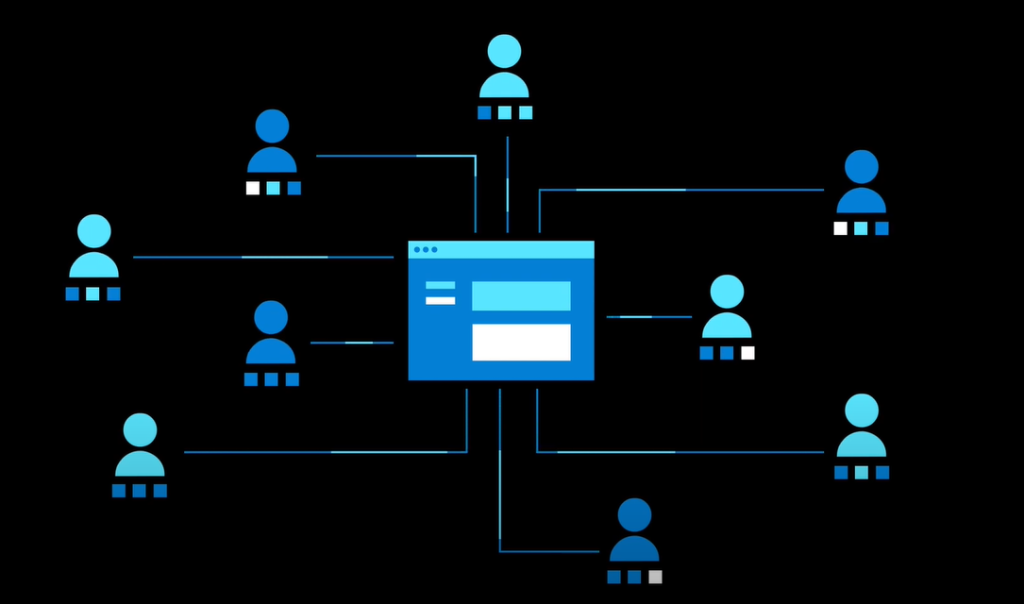In today’s world of business, it’s vital to understand your business, and what’s going on outside it. This is where business intelligence can help. So, what exactly is business intelligence?
What is Business Intelligence?
Business Intelligence is the term that stands for business intelligence is used to describe the collection and presentation of data that help an organization in making decisions. It’s a way to combine data from different sources into a meaningful and useful form. The data gathered can include the numbers of employees, operations, trends, costs, and the like. It’s a way to analyze large amounts of data to provide you with the information you need to make the best business decisions. It is used to make decisions and aid business leaders in the management of their company through the Powerful BI dashboard and Predictive analytics consulting.
Also, many believe that Business Intelligence can be used to improve personal management decisions since it provides a broader perspective on a particular situation. The discipline of business intelligence has its origins in scientific/engineering areas, using data analysis to improve decision-making. Since then, it has spread to other disciplines, including business, not least because it’s useful in understanding the drivers of key performance indicators, as well as for identifying new product/market opportunities.
How Does Business Intelligence Work?
Business intelligence, also called business analytics, is the data-driven process of using quantitative and qualitative tools. It examines and makes sense of information. One tool from the big data space, Business Intelligence (BI), is a software platform that answers the question, “How well is my business performing?”. The BI platform helps organizations answer these critical questions, allowing them to improve decision-making, make more informed strategic decisions, and make better strategic and tactical decisions that are more actionable.

What Are the Important Components of Business Intelligence?
The world of business intelligence is extremely competitive. The companies that can successfully use it to improve their performance will succeed in the marketplace. However, these companies must be able to make the most of the tools available. In order to do this, they must look beyond the tools and understand how to use them effectively.
With this, here are the following components of business intelligence:
- Data warehouse — Data warehouse reporting was long considered the holy grail of business intelligence. However, the technology behind data warehouses has evolved significantly in recent years. It has lead to BI integration into a wide range of business organizations. Data warehouses have grown in scale, and are now frequently used to analyze large volumes of data. They are considered the heart of the business intelligence and decision-making process in organizations.
- Business analytics — is the study of how information is generated and used by a business. It is the process of extracting information from raw data or data discovery and converting it into information for decision-making purposes. Predictive analytics consulting also helps the process of identifying information needs and the means of meeting them.
- Business performance management — Operational Business Intelligence is an important part of business intelligence and decision-making, but it’s not commonly used by many organizations. In this post, I’ll show you how to use performance management to deliver business intelligence data to the right people in a meaningful way, and how to make sure that your processes are in line with industry best practices.
- User interface — is a key tool of your business because it helps you to quickly and easily understand the data collected and you can make faster decisions based on it.
Explaining the Connection Between Business Intelligence and Decision Making
Over a period of time, companies invest a lot of resources in developing and deploying various tools to enable decision-making. These tools include the generation of business intelligence reports, dashboards, and web-based applications. Business intelligence tools have become integral to the success of a company. The bottom line is that the use of these tools can help transform the way decision-making is organized and the way risk is managed.
As with most other decisions, good decision-making in business can lead to good results. With a careful process of analysis, analysis of data can help a company make intelligent decisions for its business. When making decisions, the first step in using Business Intelligence is to define and understand the problem. This may occur to the business in the form of strategic planning, which includes defining the mission and values of the company.
The goal of using a Business Intelligence solution is to increase business productivity and improve decision-making; which will reduce risk. Decision-making for reducing the risk that can be modeled as a decision tree, risks are classified as “low”, “medium”, and “high” based on their frequency and severity. In general, high-risk decisions are more difficult and require more careful planning.
Being able to collect and aggregate data can provide a lot of value in business today. It gives you the ability to make decisions and take actions based on the same data that drives so many of the decisions in the first place. This is what business intelligence is all about.

What Are the Best Business Intelligence Tools to Use for My Company?
Choosing business intelligence / Data analytics tools is a critical decision that will have a huge impact on your organization’s business strategy. To help you more, here are some tools that you can choose from:
- Power BI
- ORACLE Analytics Cloud
- MicroStrategy
- TIBC Spotfire
- SAS Visual Analytics
BI tools can be used to help decision-making, but it is important to be aware that the BI tool is not a magic wand that can make everything better. Many organizations choose to go for Power BI Consulting for implementing and deploying Microsoft Power BI.
What Are the Advantages of Using Business Intelligence?
Business intelligence is a lot more than the trendy buzzword that gets thrown around in meetings these days. It is the provision of information to aid in decision-making within an organization. It is one of the most important tools for companies to achieve the right decisions. With this, companies can make use of various data sources (such as text, images, videos, and other files) and build a vast set of information in order to make informed decisions, and improve the efficiency of the business. This year, it occupies a huge market share and has gained momentum in the business world.
How can I choose the best business intelligence?
Most companies today use business intelligence software, and there are tons of tools on the market to help you make smarter decisions. But which one of these tools is right for you? You need to ask how you want to use the information you gather, what kind of decisions you’ll be making, where you’ll be storing the data, and how you’ll use this data. If you can answer these questions, you’ll be able to determine whether a tool is right for you.

How Accurate Are Business Intelligence Tools When It Comes to Results?
Business intelligence tools and data mining are great ways to drive results and create a competitive advantage. But often these tools are based on the results of limited data sets. In order to get a more complete picture, they need to be used in conjunction with other data sets, such as customer satisfaction surveys. However, just because you have more data, it doesn’t necessarily mean the data is more accurate.
Conclusion
As an organization, you have a goal of reducing your risk to your business. Business Intelligence can help you do so by providing you with detailed information about your business that can help you make decisions that reduce risk. It’s important to note that Business Intelligence can’t reduce risk by itself. Rather, Business Intelligence provides you with the tools to make the right decision with the right information, and your decision process is the only one that can reduce risk.
Fill In The Below Form For – FREE 30 Mins Power BI Consulting










